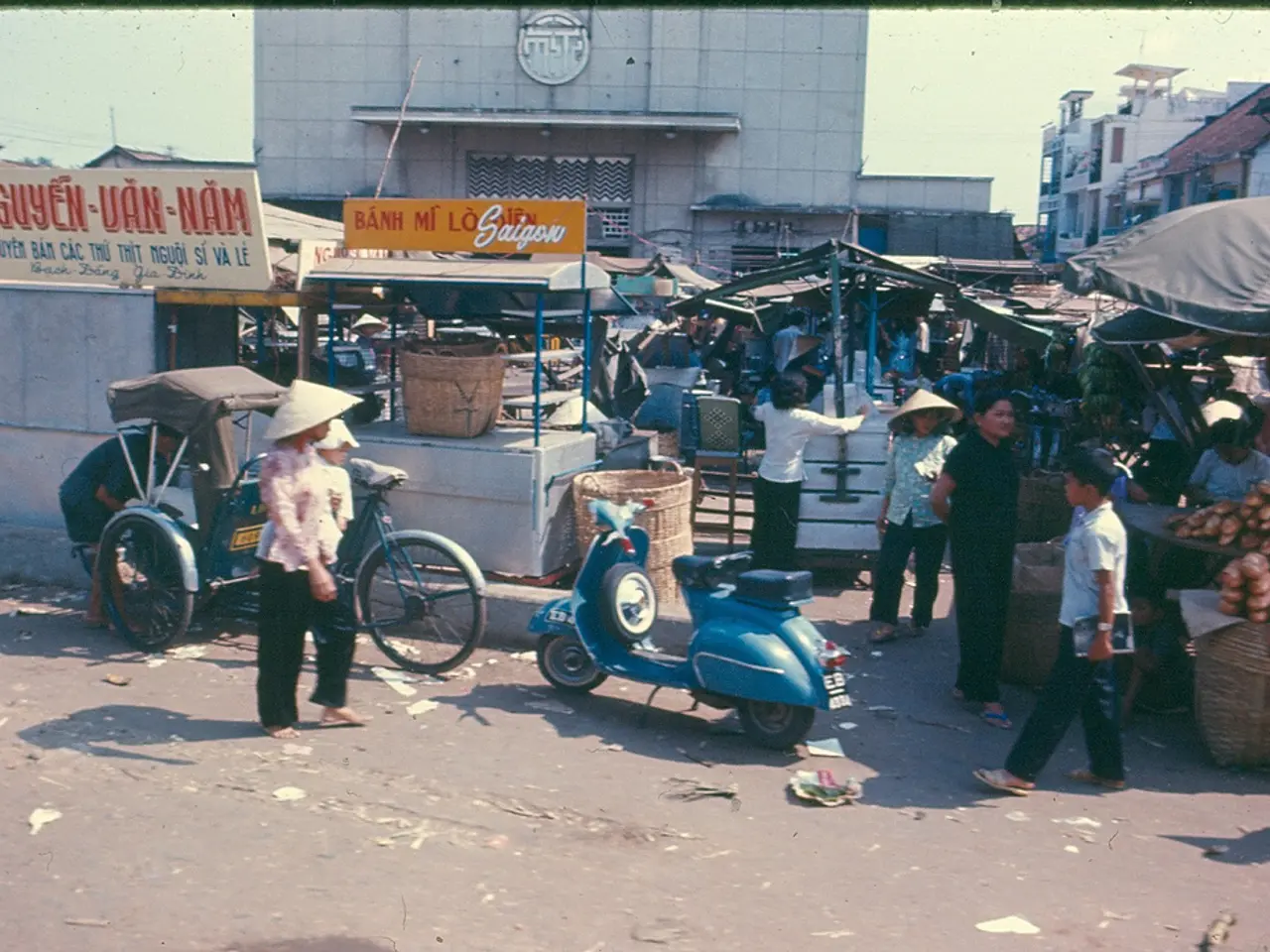Construction-focused Circularity in Malmö City
Malmö, Sweden, is pioneering innovative approaches to reduce carbon emissions and promote sustainability in the construction industry. The city's initiatives serve as a shining example for city administration-led sustainability efforts.
Malmö's municipal waste management company is focusing on decreasing the use of fossil fuels and CO emissions. One of the key strategies is the reuse of building components from decommissioned buildings, such as bricks and roof tiles. The city is collaborating with companies to make this a reality, with Dr Anna Bernstad, the Sustainability Strategist for Malmö Stad Stadsfastigheter, leading the charge.
Dr Bernstad believes in setting ambitious goals and implementing support to reach them, even if the costs and consequences are not fully known. She is revitalizing public procurement to prioritize sustainable practices in the construction of public buildings in Malmö.
The reuse of building materials will become one of the cheapest ways to achieve lower climate impacts from construction in the near future, according to Dr Bernstad. The upfront investments needed to establish new supply chains for reused building materials are enormous, but Malmö is working with traders of virgin building materials to expand their supply to include reused resources.
Malmö's commitment to sustainability extends beyond construction. The city is aiming to run entirely on renewable energy by 2030. The hybrid biogas-electric Bus Rapid Transit system is a prime example, improving customer capacity and reliability while reducing carbon emissions.
The city also promotes cycling, with minimum quotas of parking spots for bicycles, priority for cyclists at traffic lights, and bike rental schemes.
In addition, Malmö is investigating the use of biochar as an organic fuel source. The Svävarterminalen, a former hovercraft terminal in Malmö, is scheduled for dismantling and will be a significant project for reusing building components.
Malmö is also addressing the issue of obsolete offices and university classrooms due to the COVID-19 pandemic. Many of these spaces are being refurnished, refurbished, or reconstructed for use as co-living accommodation to reduce climate impact.
The city facilitates open dialogue with consultants, architects, constructors, suppliers, and local entrepreneurs to understand the demand for change and prepare the construction chain for the changes ahead.
Malmö's efforts are embedded within broader frameworks such as participating in Fossil-Free Sweden, following internationally recognized green building standards like LEED (Leadership in Energy and Environmental Design), and hosting sustainability-focused events like the Malmö Festival with green initiatives.
Together, these initiatives demonstrate Malmö's key sustainability initiatives in construction revolve around climate-neutral goals, collaboration on fossil-free building practices, and promoting reuse and material efficiency within sector-wide and city-wide climate strategies. Malmö's leadership in sustainable construction is strategic, collaborative, and forward-thinking.
Dr Bernstad, in collaboration with city authorities and private companies, is aiming to make reusing building components from decommissioned buildings a common practice in environmental-science centered sustainable-living initiatives. She envisions that this approach could become a cost-effective method for reducing climate-change impacts in the home-and-garden sector. In line with this, Malmö is striving to foster sustainable-living lifestyles by transitioning its energy supply to renewable sources and promoting alternative modes of transportation like cycling.




